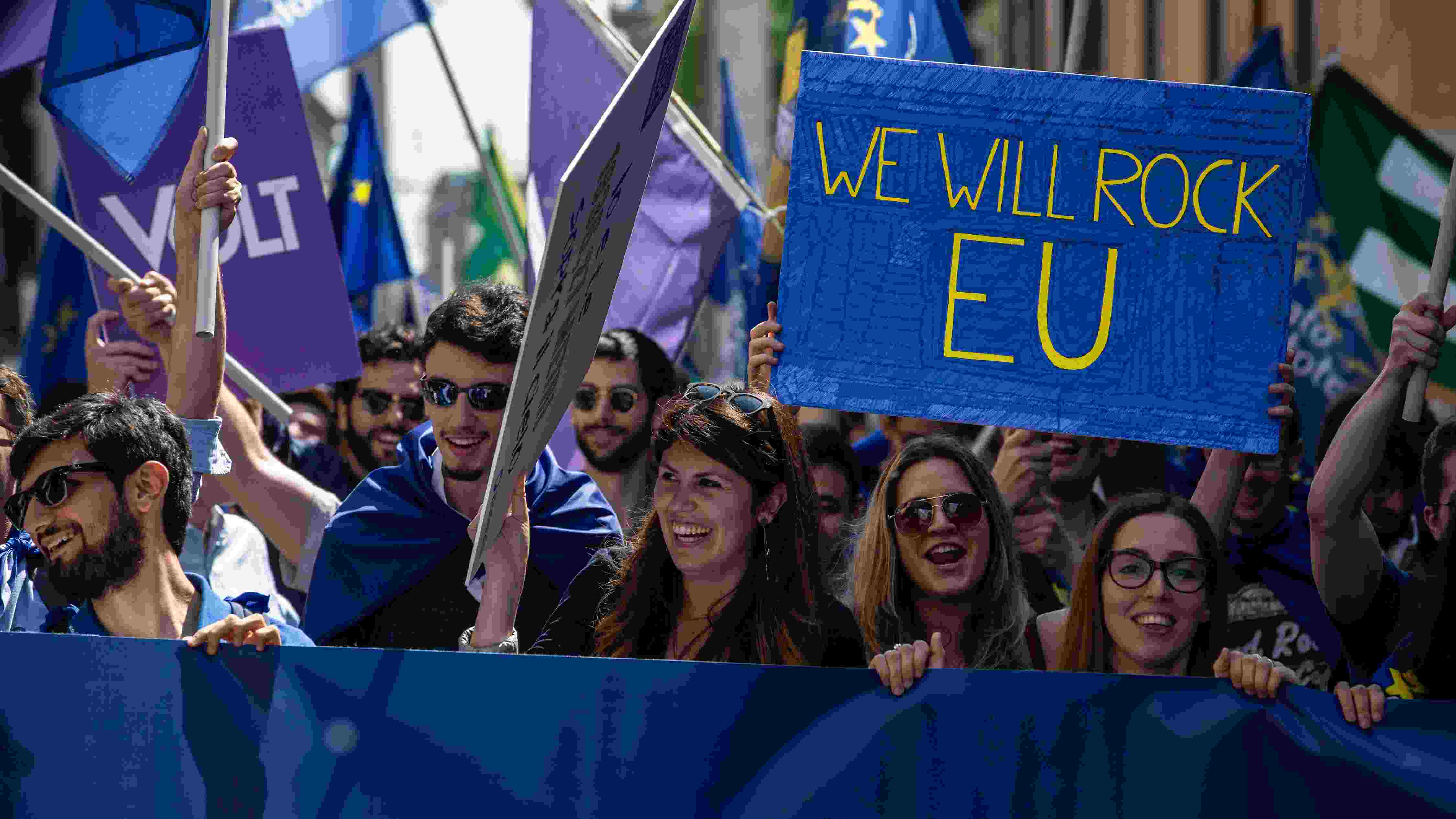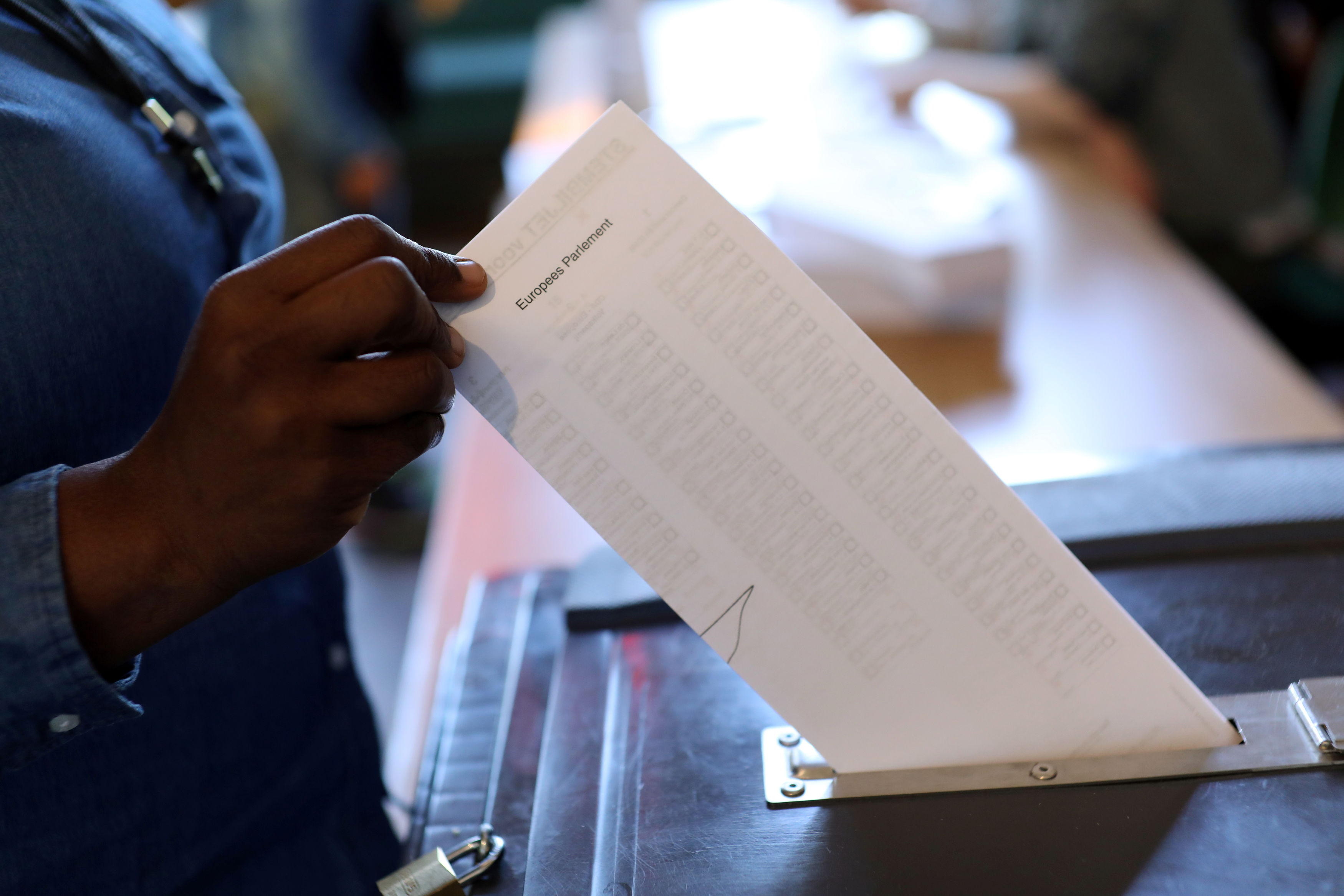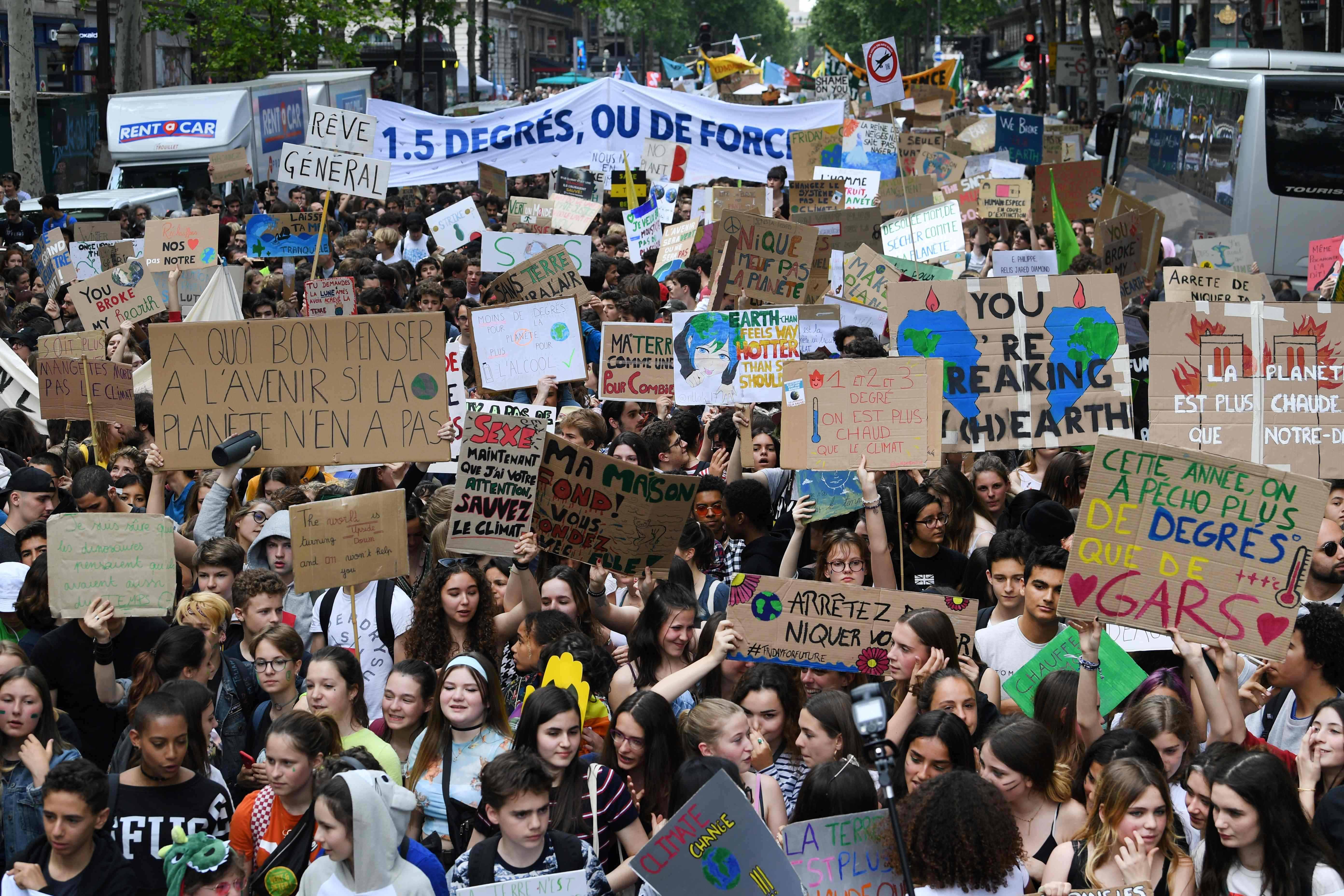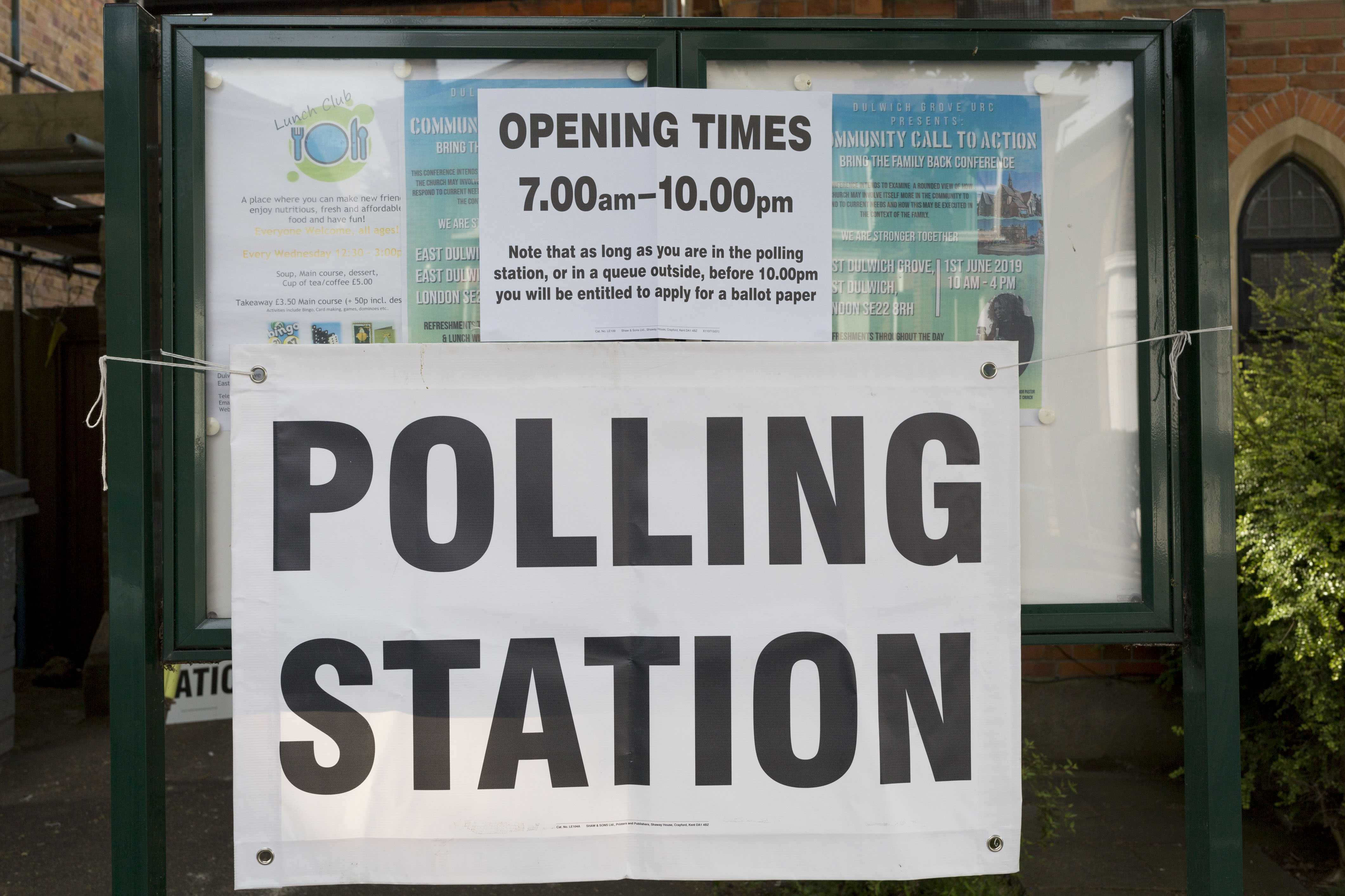
World
22:20, 25-May-2019
EU elections: Will young people turn up?
By Sim Sim Wissgott

European elections have long suffered a voter turnout problem. Disinterest has been especially severe among young people.
Ahead of this weekend's vote, political parties and campaign groups have done their best to motivate young voters to head to the polls. Meanwhile, school children and students worldwide have taken to the streets to demand action against climate change.
So can we expect higher youth turnout this year, and what could this mean for the next EU parliament?
A persistent turnout problem
Voter participation in European elections has dropped steadily since 1979. From 61.99 percent, it fell to just 42.61 percent in the last election in 2014.
And the proportion of young voters was dismal. A post-election survey by the European parliament in 2014 found less than 28 percent of those aged 18 to 24 had bothered to head to the polls. This compared to 51 percent of those aged 55 and above.
Young voters have often been dismissed as apathetic. Campaigners meanwhile blame politicians for doing too little to get young people interested and failing to address their concerns.
Ahead of elections on May 23-26, efforts to get young voters to the polls seemed to show a new recognition that their votes count too.
Read more: The Europe of tomorrow

A voter casts a ballot in the European elections in Amsterdam,
Netherlands, May 23, 2019. /Reuters Photo
A voter casts a ballot in the European elections in Amsterdam, Netherlands, May 23, 2019. /Reuters Photo
YouTube, Instagram and Spotify
Austria made a first move to get more young people involved in 2007 when it lowered the voting age to 16. Greece and Malta have since followed suit.
French President Emmanuel Macron took part in a live chat on Friday with a young YouTube star in a last-minute attempt to drum up support for the elections.
The European parliament meanwhile recruited so-called "influencers" with millions of followers on Instagram, Facebook or Twitter to get the message out and help explain how the European parliament works and how to register to vote.
Creative projects and groups with names like Vote Together, This Time I'm Voting and Your Vote Matters sprang up, with more or less backing from EU organizations, to urge people to "Go Vote."
In perhaps the most unusual campaign move, music streaming service Spotify sent users messages urging them to vote and even released an EU election playlist, labeled "Get Vocal Europe!" and featuring artists from every member country.
Shaping the next European parliament
But it's not just about turnout figures and statistics.
Young voters tend to be more pro-European than their elders: a recent survey by the Pew Research Center found as much as a 30-point gap in some countries between the percentage of 18-29-year-olds who favor the European Union, and those aged 50 or over.

Young people hold placards and banners during a 'Fridays for climate' protest in Paris, France, May 24, 2019. /Getty Images
Young people hold placards and banners during a 'Fridays for climate' protest in Paris, France, May 24, 2019. /Getty Images
With experts predicting wins for populist, nationalist and eurosceptic parties at these elections – and with Brexit looming over the bloc, prompting fears of further disintegration – youth votes are more crucial than ever.
On issues too, young voters' priorities differ greatly from their parents. Among their main concerns: climate change, digital rights, migration and youth unemployment, rather than pensions and the economy.
Parties that put an accent on these issues, such as the environmental Greens, could thus benefit from a high youth turnout, impacting the make-up and policies of the European parliament for the next five years.
Parties with younger candidates – including the far-right, which has been actively courting the youth vote – also look to profit: at the moment, the average age among MEPs is 55, with just one deputy aged under 30, while the oldest is 90.
'We want a say'
On Friday, school children and students worldwide ditched class again as part of a massive movement demanding action against climate change.
From the environment to Brexit, young people have been vocal about issues that will directly affect them in the near future. In that, this election differs from previous ones: young people have a clear stake in the outcome and have been demanding a say at the policy-making level, exasperated that politicians who will not have to suffer the consequences are the ones making decisions.

A sign at a polling station in East Dulwich, south London, UK, May 23, 2019. /Getty Images
A sign at a polling station in East Dulwich, south London, UK, May 23, 2019. /Getty Images
As Our Future Our Choice, a group campaigning to register young voters in the UK, noted ahead of the vote: "We shouldn't have to live with something we don't want."
"On May 26, you have the chance to vote and make some fundamental change: (to elect) the people who will be responsible for our present, and most importantly our future," German "influencer" Alex Boehm urged in a YouTube video entitled "Go Vote, dammit" that was viewed over 200,000 times.
Will they, won't they?
Young voters tend to decide late who they will vote for, and with 28 countries heading to the polls, predictions are tricky.
Already, the Netherlands – which voted on Thursday – has caused a sensation, with exit polls predicting a win for pro-EU parties there, against analysts' expectations.
So far, every member state that has headed to the polls, except Lithuania, has reported higher early voting turnout than in 2014, according to poll forecaster Europe Elects.
The youth vote could still create a surprise when final results come in on Sunday.
(Cover picture: People take part in the March for Europe in Milan, Italy, May 12, 2018. /Getty Images)

SITEMAP
Copyright © 2018 CGTN. Beijing ICP prepared NO.16065310-3
Copyright © 2018 CGTN. Beijing ICP prepared NO.16065310-3